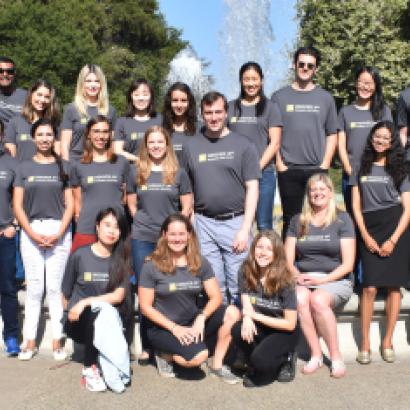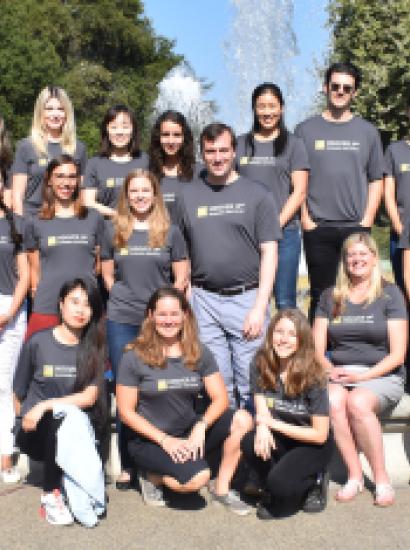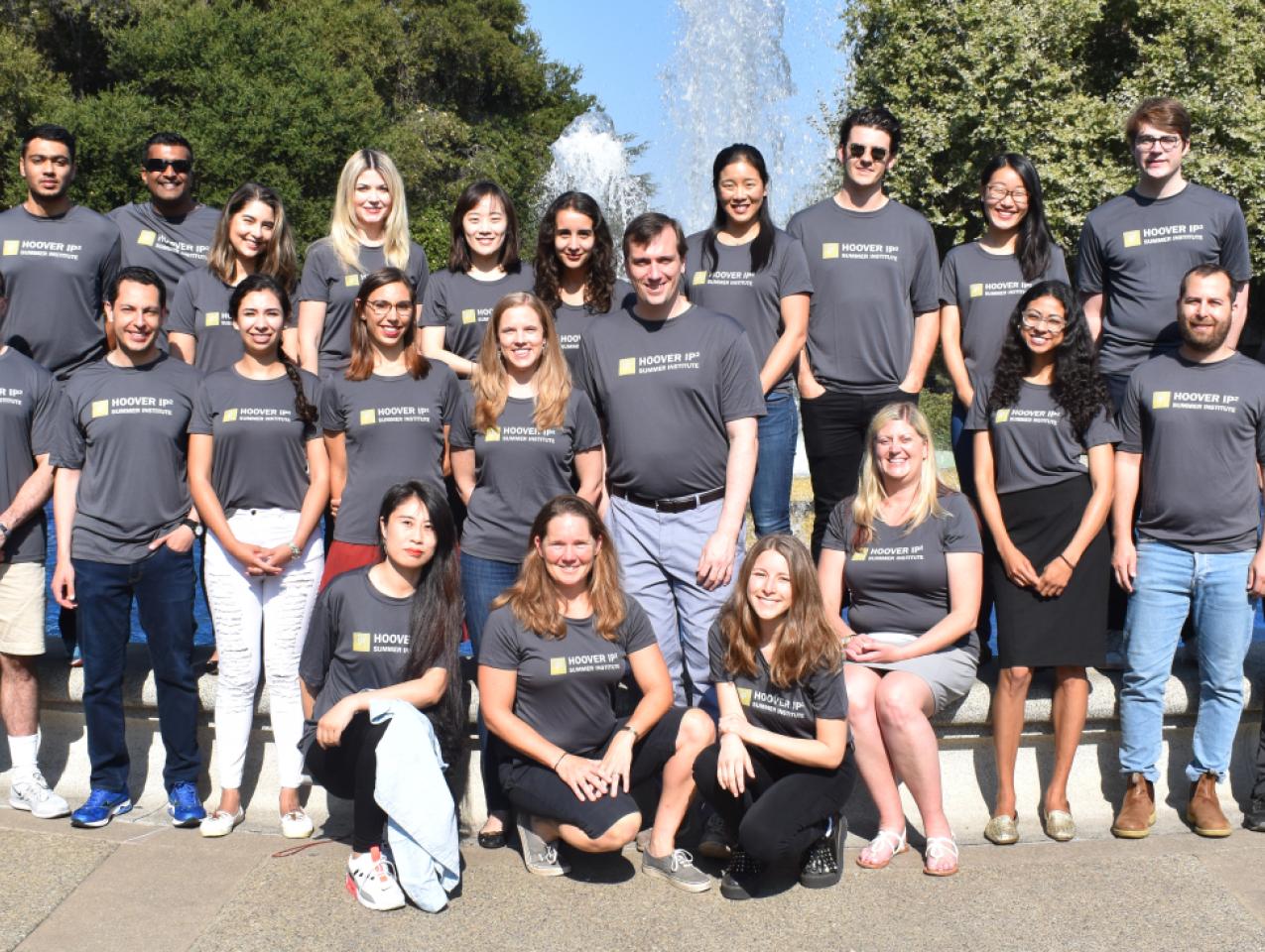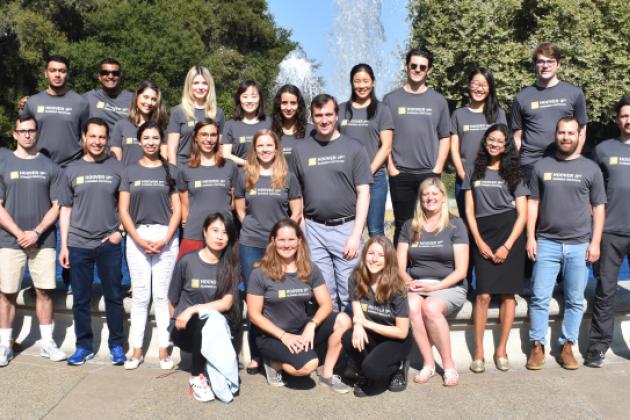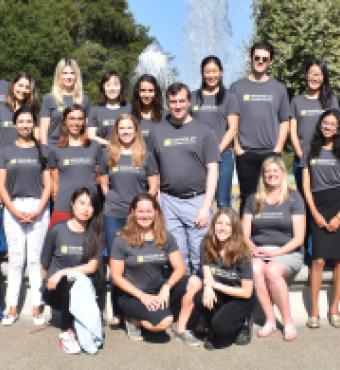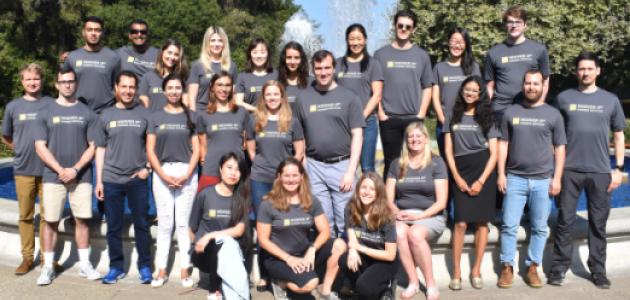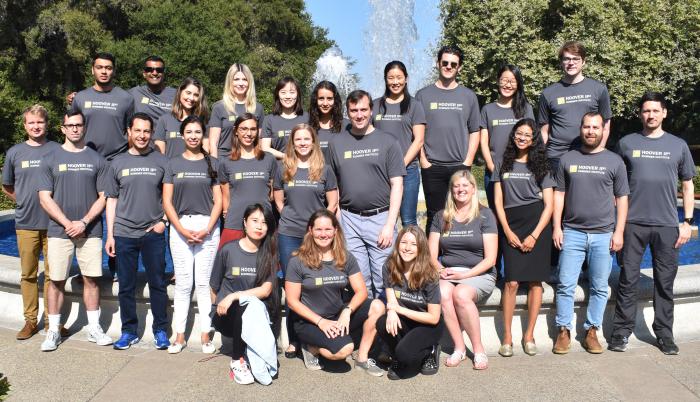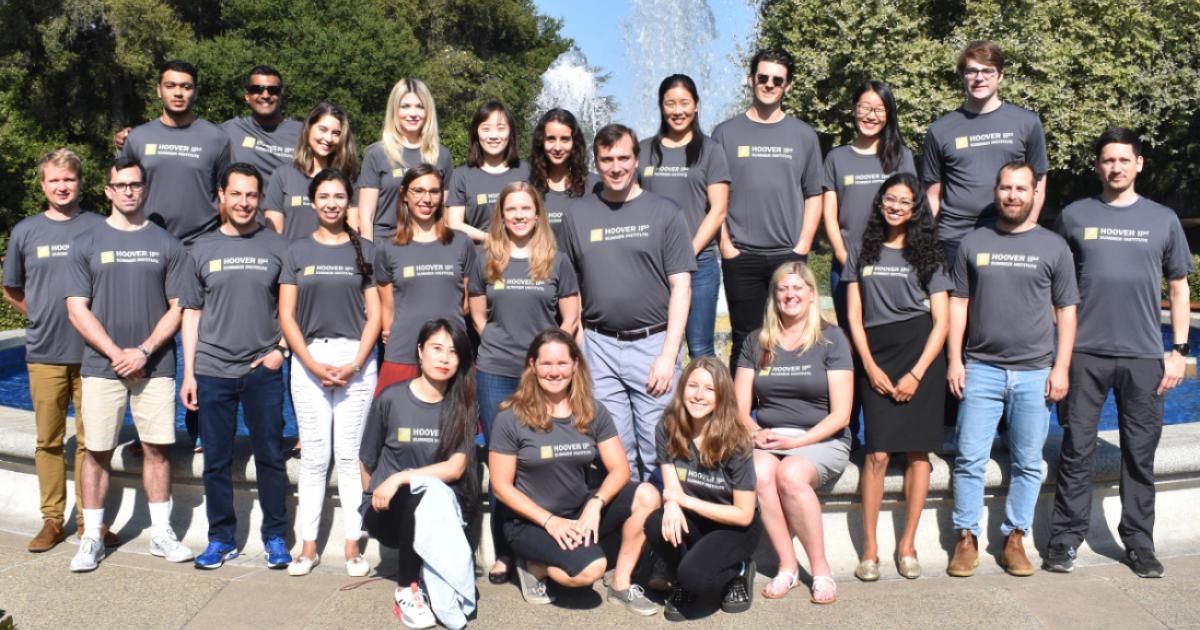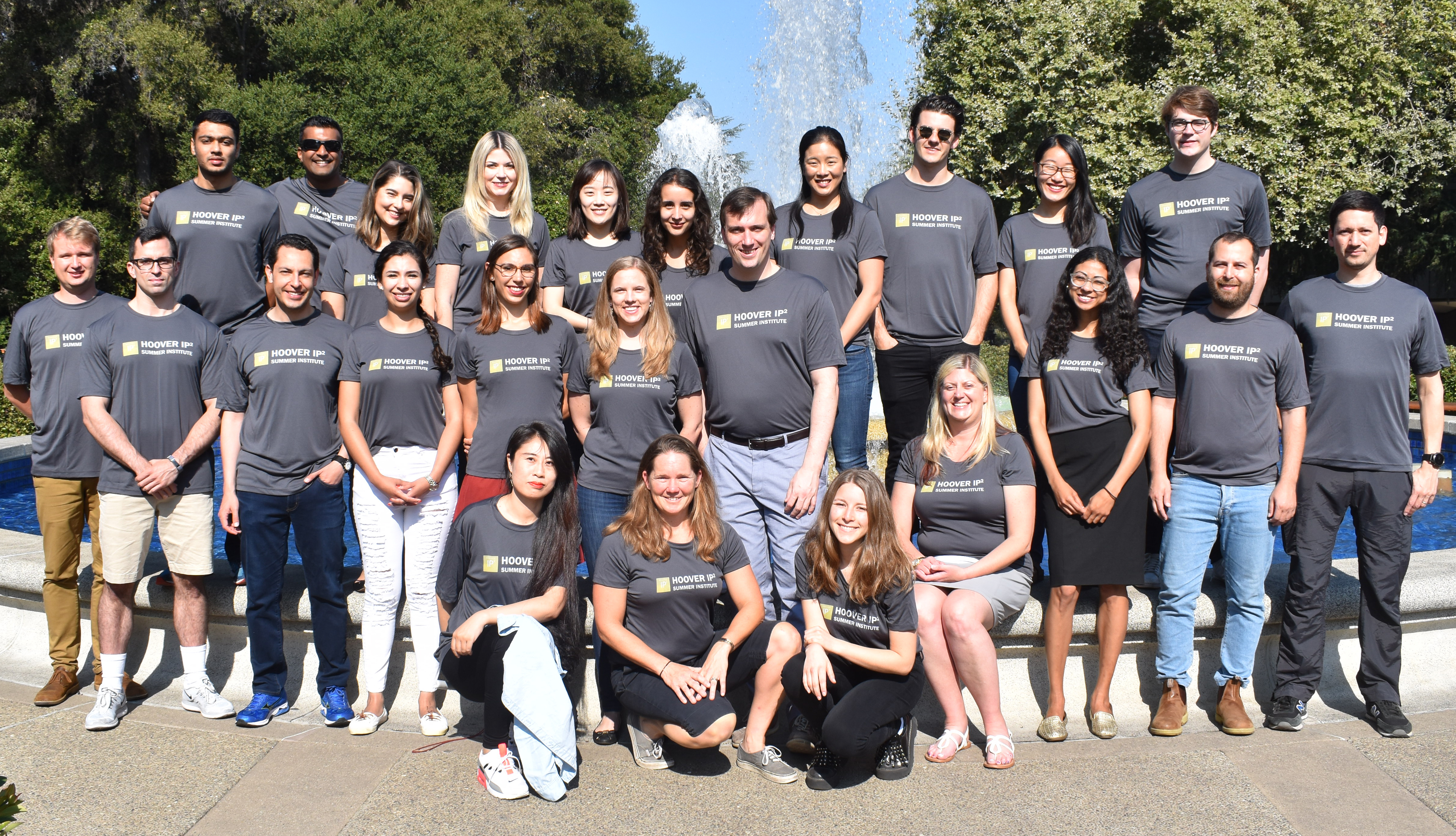
The 2018 cohort of the Hoover IP² Summer Institute on the Economics and Politics of Innovation overwhelming endorsed the program that ran from August 5 to August 18, 2018, at Stanford University. In a survey of participants administered at the program’s conclusion, all respondents stated that they were satisfied with the institute and they would recommend it to other students and young professionals. In the words of one participant, “the Summer Institute was one of the best experiences I’ve had in my professional and student life.”
The majority of the 2018 Summer Institute participants were law students or had obtained law degrees and are practicing in the private or the public sector. The latter group primarily consists of judicial clerks. Other students had backgrounds in public policy and economics; some conduct economic policy research while others serve in government agencies in the US and abroad that create and enforce economic policy.
Hoover IP² director Stephen Haber stated that the goal of the Summer Institute is “to teach young policy makers to think systematically about how to make sound policies on the basis of reason and evidence.” The 2018 Summer Institute was the fifth annual program. The focus of the current year’s program was on the generation, distribution, and growth of economic surplus. The 2018 curriculum emphasized (1) economics and data analysis, (2) competition and antitrust, (3) innovation and the patent system, (4) finance, and (5) crafting regulations. Within this framework, there were new sessions on market externalities, corporate lobbying, and the regulatory challenges posed by disruptive innovations such as the Internet of Things.
Participants completed the program with the presentation of a group project. As in previous years, the goal of the project is to equip young and aspiring policy makers with the methods of analysis by which scientifically sound results are obtained. This year, students examined published public policy research papers and evaluated whether their underlying theories were logically consistent, logically complete, and supported by evidence—with an eye to quantitative data over anecdotal evidence. Some 95 percent of participants said that the skills they learned in this exercise will be of use to them in their future work and compelled them to analyze “information in a more meticulous manner.” One commented that “it was a great way to apply some of the content of the classes.”
Overall, participants in the program reported learning an immense amount from both the high-caliber instructors and as well as from their classmates, who shared a wealth of diverse experiences and viewpoints. One person went as far as to say the “outstanding participants” was the most beneficial aspect of the institute, as interaction with them “allowed the topics to be absorbed in class from new and different perspectives.” Students departed at the end of the two-week program ready to put the skills they honed to use: “participating in the program inspired me to continue pursuing my own research publication and I look forward to applying many of the lessons that I learned during the institute.”
The Summer Institute is one offering from the Hoover Institution Working Group on Intellectual Property, Innovation, and Prosperity. The institute, major conferences held semiannually at Hoover, symposiums in Washington, DC, and a working paper series are the major components of the program, which seeks an interdisciplinary approach to studying intellectual property rights issues.







